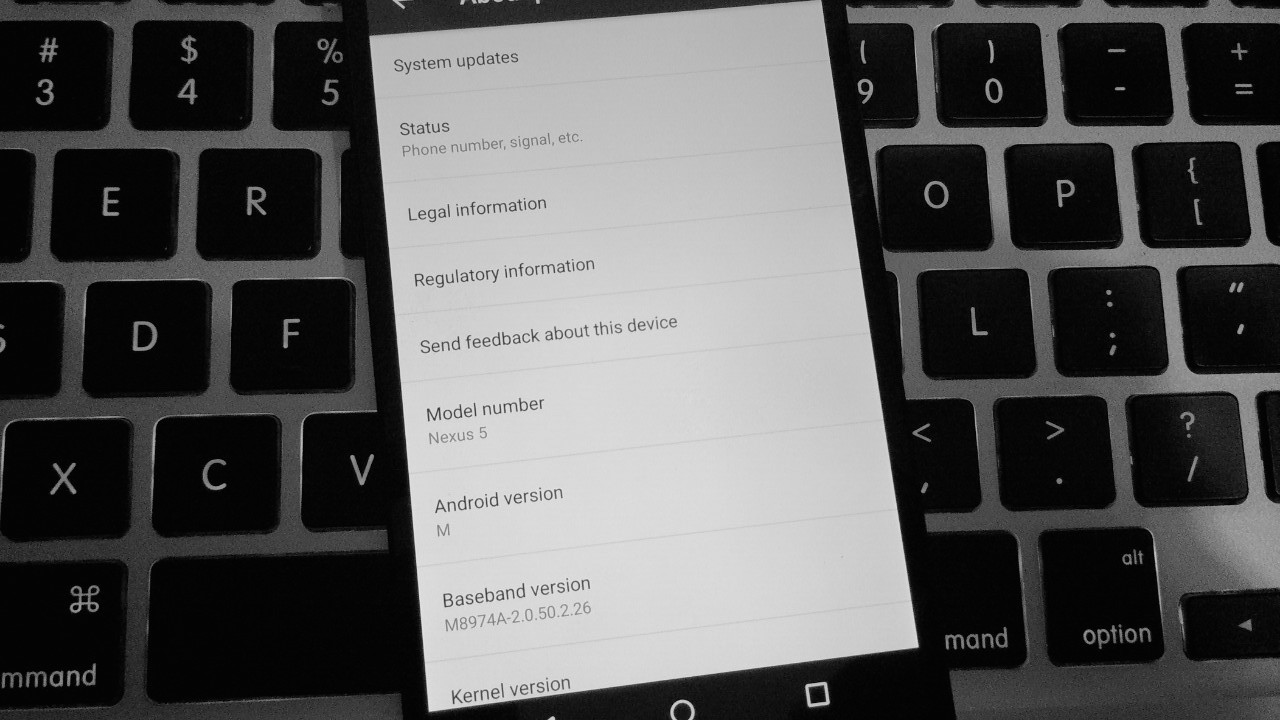
How to Install Android Marshmallow on Nexus 5, 6, 9 using Windows PC or Mac
At its developer conference I/O 2015, Google today unveiled Android M, the latest iteration to its mobile operating system. The update brings with it a handful of interesting features and other improvements. The full-fledged version of Android M will roll-out sometime later this year, but for those who want a sneak peek a developer preview version of Android M for select Nexus devices is out now. Here’s how you can install it on your smartphone or tablet.
Android M comes with a number of interesting features including Chrome custom view, built-in fingerprint scanning feature, and permission manager. The company says that with the new update it is going back to the basics -- offering bug fixes and performance improvements to the users. For instance, Android M-powered devices will have twice as much battery life compared to Lollipop-powered devices, the company claims.

Mac OS X tops vulnerabilities chart for April
Security company Secunia has released its latest quarterly Vulnerability Update covering the period from February to April 2015.
It looks at the top 20 products with the most vulnerabilities each month and finds that there have been a total of 1,691 new vulnerabilities appearing in the top 20 over the three month period.
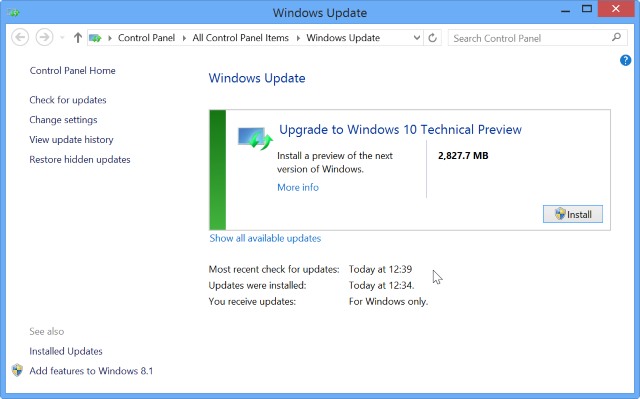
How to upgrade from Windows 7 or 8 to Windows 10 via Windows Update
If you like the idea of trying out the next version of Windows before it is officially launched, Microsoft has made the Windows 10 Technical Preview available for everyone to use. There are various ways to get the preview installed on your computer, but since the release of build 9926, it is possible to upgrade your current Windows 7 or Windows 8 installation to Windows 10 using Windows Update.
This is a much simpler option than downloading the ISO image, but it is an upgrade route that almost encourages people to install the preview build on their everyday computer -- don’t forget that this is not a finished product! We've already looked at how to install Windows 10 in a virtual machine, but if you have a spare machine running Windows 7 or 8, using it as a test bed for Windows 10 just got a whole lot easier.
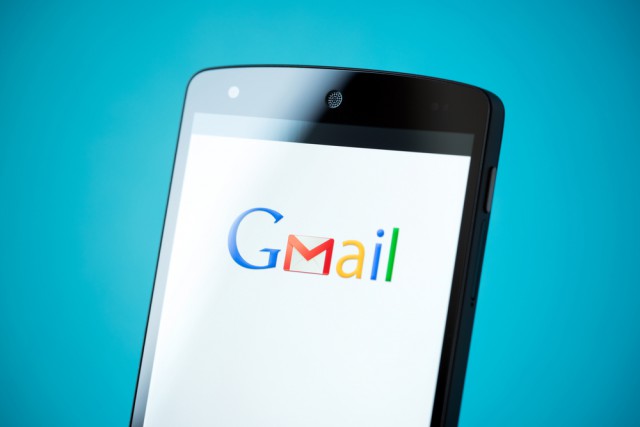
How to back up all your Gmail emails
Gmail might be the most popular email service in the world, but even the biggest players fall sometimes, and once that happens, the little guys will be there to cheer.
Server outages and crashes have happened before, and even though Gmail is generally seen as a solid, well-built and stable product, it too can crash, leaving you without all those precious emails you’ve been saving.
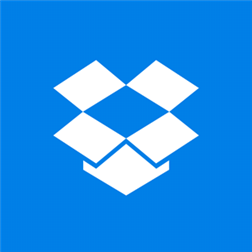
Dropbox for Windows, Windows Phone becomes universal app, gains new features in the process
Cloud storage service Dropbox has turned its Windows and Windows Phone apps into a single universal app, giving users a consistent experience across smartphones, PCs and tablets that are running Microsoft's tiled operating systems.
The latest version of Dropbox bridges the gap between the Windows and Windows Phone versions of the app, sharing most of the code, also gaining a number of new features in the transition to universal app status. The most important changes are aimed at the Windows Phone-toting crowd. Some are long-overdue, being mentioned in my initial coverage of the Windows Phone client in mid-January.
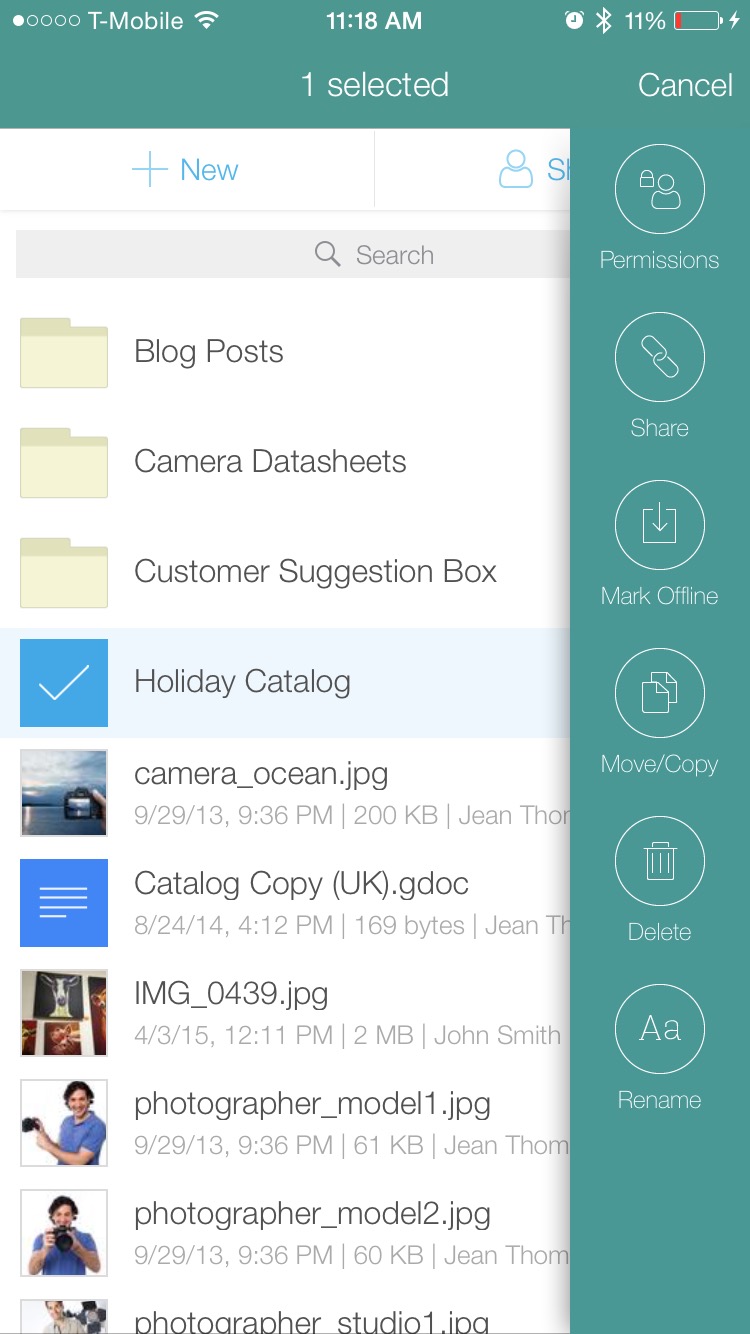
New enterprise file management suite takes mobile first approach
According to research by IDC the number of enterprise applications optimized for mobile is set to quadruple by next year as businesses seek to improve workflow across the organization.
Adaptive enterprise file services specialist Egnyte is unveiling its new enterprise mobile suite that's optimized for business users. It allows them to seamlessly access, manage and share online and offline data from both cloud and on-premises storage.

Microsoft Solitaire turns 25 -- what are your fondest memories of the game?
Back in the 90's, I got my first computer. I was not alone in this regard; at the time, Windows-based computers exploded in popularity thanks to the Internet. These machines were hardly inexpensive, often costing several thousand dollars. This was at a time when a thousand dollars was much more valuable than today.
The funny thing is, beyond using AOL to talk to strangers, we home users did not know what the heck to do with these expensive machines. Before you bought it, you would envision all of the magical things you will do, but ultimately, it was often used for one thing -- solitaire. Yes, many consumers justified their purchases by playing Microsoft Solitaire for hours on end. Hell, even in the corporate world, employees would play the game instead of getting work done; it was gloriously unproductive. Today, the game turns 25.
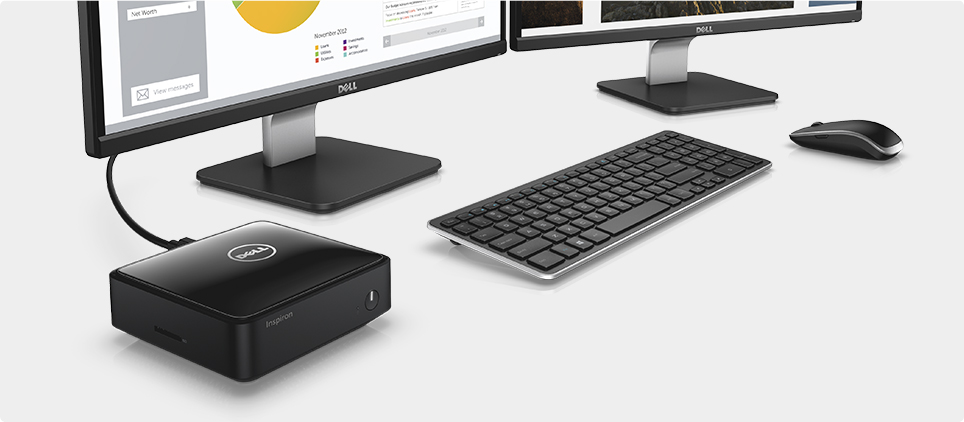
Dell launches Windows-powered Inspiron Micro Desktop, starts at $179
For all you Windows enthusiasts out there who appreciated the Dell Chromebox, a miniature computer from the manufacturer, but wished that it ran Windows instead, your wish has finally come true. The American technology giant has launched the Inspiron Micro Desktop which shares the same design language as the Dell Chromebox, but runs on Windows. It will set you back by at least $179.
As for the specifications, the Inspiron Micro Desktop packs in 2 gigs of RAM alongside 32GB of storage, which can be expanded via external SD card or an external hard drive. There's an Ethernet port, one HDMI outlet, SD card reader and a DisplayPort. Regarding USB, it comes equipped with one 3.0 port and three 2.0 ports. It also supports Wi-Fi for connectivity.

Google stops developers and Mac users installing unofficial Chrome extensions
Google is extending its block on unofficial Chrome extensions to the developer channel and Mac users. The move is a continuation of the decision taken last year that forced people using the stable and beta channels of the Windows version of the browser to stick with official extensions.
It is a decision which aims to stop people from installing malicious add-ons; Google has previously been criticized for failing to clear out junk quickly enough. With immediate effect, those on the developer channel will have to install extensions from the Store, and the policy will be applied to the Mac version of Chrome in a few weeks. All is not lost for anyone who wants to install unofficial extensions, though.

Windows 10 editions revealed!
A common complaint of both Windows promoters and detractors is the overwhelming number of versions, or editions, on the market. The sheer number of SKUs can be maddening, and quite frankly, confusing for consumers.
Many people -- myself included -- had hoped Microsoft would do away with all of the editions, and only have one. Admittedly, having one edition was a pipe-dream, but with all the good moves the company is making lately, I thought two or three editions was realistic. Unfortunately, Microsoft has announced the upcoming editions of Windows 10 and there are a lot. In fact, the number of editions have increased from Windows 8!
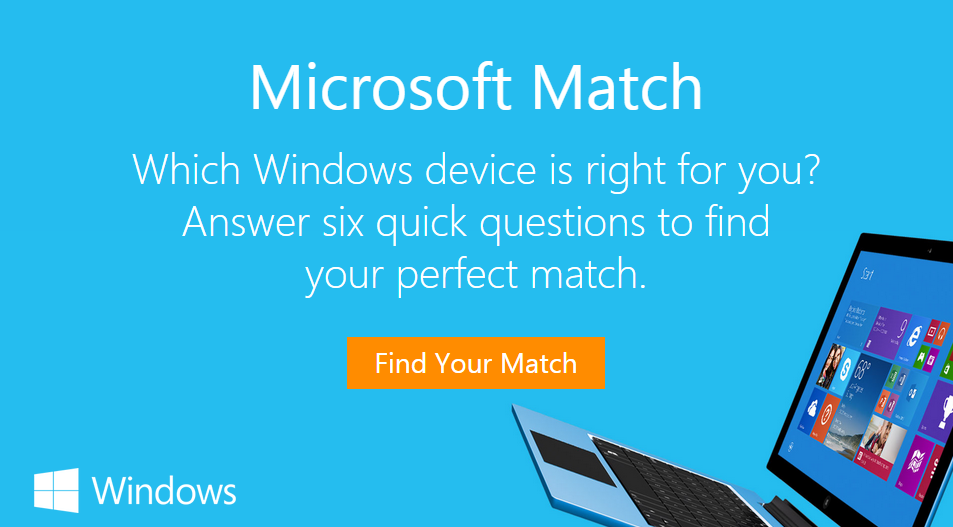
Microsoft Match from Staples will find the perfect Windows device for you
Computers can feel like magic. Not only can they do boring things such as business calculations, but they can do social things too, such as match people together for dating. Hell, many people end up marrying someone they meet through dating websites.
If computers can successfully match two humans romantically, what if they could also match humans to the perfect computer? Thanks to Microsoft Match from Staples, they can. By answering some questions about your needs and wants, this new tool from Staples will tell you which Windows device to buy.

Windows Media Center is dead -- Microsoft promises DVD alternative for Windows 10
When Microsoft released Windows XP Media Center Edition in 2002, I remember being awestruck. It was as if I was looking into the future; surely everyone in the world would eventually have giant towers next to their televisions running Windows. The reality? Not so much. The operating system only shipped with pre-built machines that were quite costly. Ultimately, it became freely available for most of the common Vista and Windows 7 versions, but was put on life support with Windows 8, where it was a paid add-on. Digital TV ultimately killed much interest, as adding PCI-e tuner cards and CableCARDs were a huge pain in the butt (the rear-end pain was often caused by Cable TV providers).
Fast forward to 2015 and we are on the verge of a new version of Microsoft's operating system, Windows 10, and many people have been wondering about the status of Media Center. Well, I am happy to say it is dead. The clunky bolt-on will not be available anymore. Why am I happy? Storing tons of content locally and playing it back is a dead concept; people need to move on. Hell, nowadays I would guess it is used mostly by pirates with massive hard drives. The future (and the present, really) is streaming both movies and music from the Internet. If you are a Luddite that depends on Windows Media Center for watching DVDs, you will be happy to know that an alternative is coming to Windows 10.

Blame the dollar: PC prices rise, as features fall
Gartner predicts that currency devaluation will compel major computer manufacturers to reverse a longstanding trend. "PC vendors selling to Europe and Japan, where local currencies have fallen up to 20 percent since the start of 2015, have little choice than to raise prices to preserve profits" -- by as much as 10 percent, Ranjit Atwal, Gartner Research director, says in a statement earlier today.
Higher prices mean more consumers will do with leaner configurations, and many businesses will push back upgrades. All the while, PC makers will give customers less for more money. Atwal anticipates fewer features in new computers in affected markets and increased sales emphasis in "regions least affected by these currency effects".

How to create a bootable Windows 10, Windows 8.x or Windows 7 USB flash drive
If you want to install Windows from scratch, you have two choices -- you can install the OS from a CD/DVD or from a USB flash drive. The latter is the better option, especially as optical drives are becoming something of a rarity these days.
The process of creating a bootable USB flash drive for Windows 7, 8.1 or 10, is quick and easy. Here’s how to do it.

Google Chrome on Windows XP support extends until the end of 2015
Believe it or not, a year has passed since Microsoft stopped supporting Windows XP. And even though the 13 year-old operating system no longer receives security updates -- at least not officially -- it is still being used by roughly 17 percent of Windows users. For some companies it is reason enough to continue to support Windows XP today, even though its maker has long left it for dead. And Google is one of them.
Six months after Windows XP support ended, Google announced that its Chrome browser would continue to be supported on the OS with "regular updates and security patches until at least April 2015". That was done in order to give its users more time to finish migrating to a newer Windows release, one that would, hopefully, be officially supported by Microsoft for many more years to come. Obviously, that hasn't gone as expected. But instead of pulling the plug, Google is now giving Chrome users on Windows XP another reprieve.
